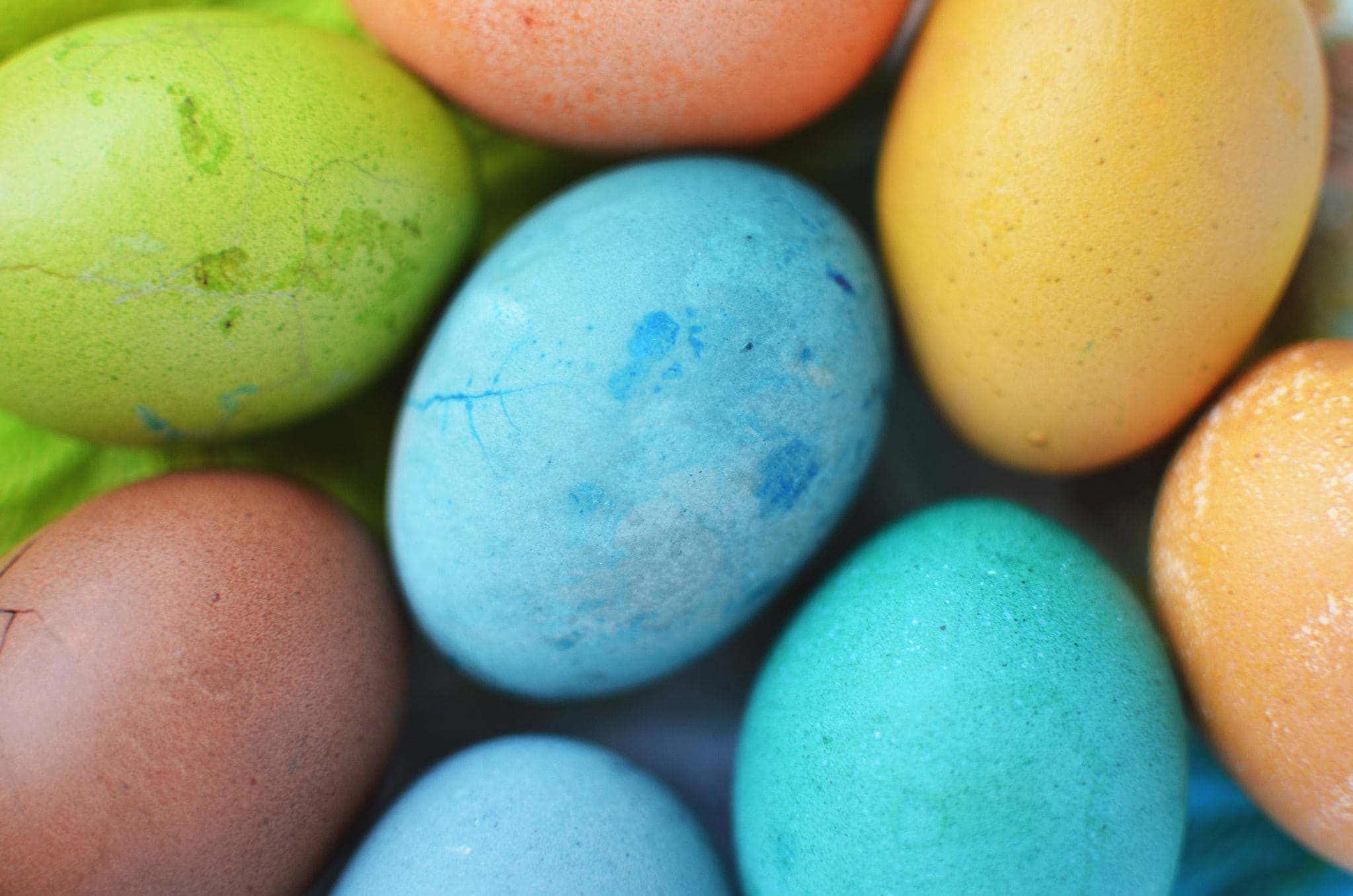
Origins of the the Easter Egg.
Colorful eggs have long been synonymous with the Easter season. Why? How? Learn the Easter egg history, the origins, and traditions.
Easter Egg History & Origins
Since ancient times, pagans long considered eggs a symbol of fertility and restoration to the point that they were given as gifts and offerings during spring festivals to celebrate the new season. Later, early Christians associated the egg with new life and its symbolism with the resurrection of Christ which coincided with the spring season.
Dyeing and decorating Easter eggs originated in the Middle Ages with Eastern Orthodox and Western church traditions. Christians were forbidden from consuming eggs and dairy during the Lenten season. So all the eggs laid by chickens during the 40 days were hard-boiled, marked, and decorated. These eggs were given as Good Friday offerings to the church as well as to the poor who could enjoy them on Easter Sunday. As decorations became more lavish, it was enjoyed by children and even the royal families.
A few centuries later, in the 1800s, chocolate eggs were created in France and Germany – though they were yet to be the hollow versions of today and rather far more bitter and hard.
Sign up for my newsletter on the sidebar for blog updates and my travel insider tips! And, check out my vlogs on YouTube!


